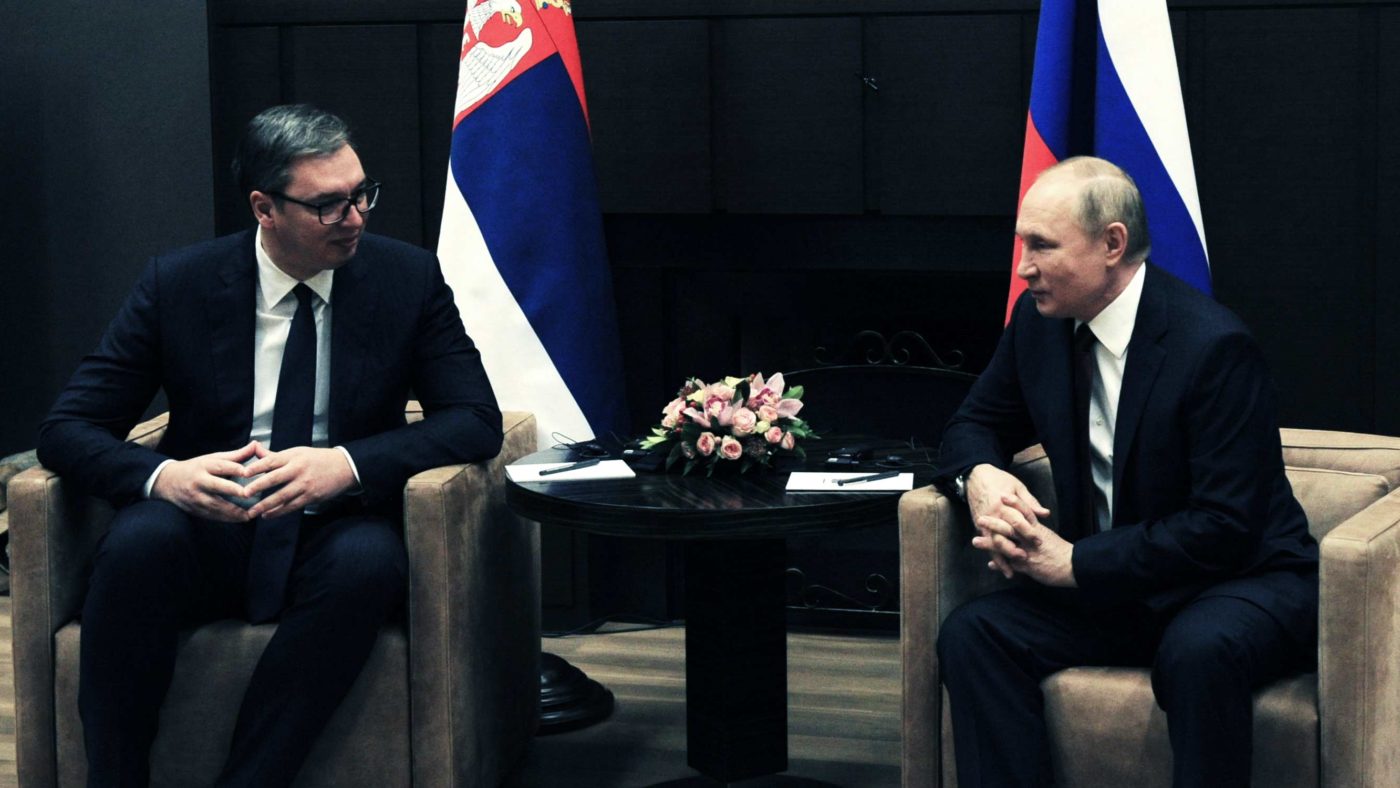As Europe implements the most comprehensive set of sanctions ever adopted against a country, one state stands out in its response to the Russian invasion of Ukraine – Serbia. After a 36-hour-long silence at the beginning of the invasion, President Aleksandar Vučić announced on February 25 that while Serbia supports Ukraine’s territorial integrity, it would not impose sanctions against Russia.
As President Vučić went on to explain, Serbia’s decision whether to impose sanctions will be based solely on its own vital economic and political interests. Mr Vučić concluded that ‘the experience [Serbia] had with Western sanctions towards the end of the last century… means that it is not in Serbia’s vital interest to impose sanctions on any state’.
It is not that Serbia has been unwilling to condemn the invasion.
On March 2, a few days after ruling out sanctions, Serbia joined 140 states who voted in favour of the UN resolution that explicitly condemned the Russian invasion. Even then, though, Serbia reiterated that no sanctions would be imposed, despite the mounting pressures to do so.
Mr Vučić is, however, willing to offer humanitarian assistance. He told the Ukrainian ambassador on March 4 that Belgrade would ‘accept [Ukrainian] refugees, to whom [the state] will offer the best available conditions, hotel accommodation, residency and work permits, in line with the laws of the European Union’.
President Vučić’s balancing act has three key justifications.
First, Russia and Serbia have always enjoyed good relations – with Russia often siding with the Serbs even when the rest of the world refused to do so. Notably, Russia refused to back Nato bombing of Serbia in 1999, and Russia remains one of the states that does not recognise Kosovo as an independent country. Just last year, Russia delivered a fleet of air defence systems to the Serbian military. Breaking with Moscow now, it is felt, would cost Belgrade one of its most reliable supporters.
Second, as gas prices soared across Europe in November 2021, fears of Europeans being unable to heat their homes grew. In response, President Vučić secured a remarkably generous deal with Vladimir Putin – who agreed to peg the price of natural gas at $270 per 1,000 cubic meters for the next six months. By contrast, at the time, the spot price for the rest of Europe was around $1,000.
Finally, Mr Vučić faces presidential, parliamentary, and local elections in April – and imposing sanctions on Russia could jeopardise his campaign. A non-trivial number of Serbs supports Russia, and some of Vučić’s supporters expressed dissatisfaction with Serbia signing the UN Resolution condemning the invasion of Ukraine. On Friday, several thousand people were on the streets of Belgrade demonstrating support for Russia.
In some ways, Serbia’s position mirrors the position of traditionally stronger states like India, and is partially reflective of the former Yugoslav policy of non-alignment during the Cold War. Neither country sees it as in their interest to impose punitive measures against Russia – and there are few easy ways for the EU or the US to pressure them to change their position.
The EU’s most obvious pressure point would be to delay Serbia’s accession to the bloc. But even if the EU were willing to do so, it is unlikely that such a decision would have a significant impact on Serbia. Given Emmanuel Macron’s statements about halting EU enlargement for the time being, there is little belief in Belgrade that Serbia will join the EU any time soon.
Western leverage over Serbia will only diminish further if Nato accepts Kosovo’s request to urgently join the alliance, along with the demand to have a US-led permanent military base in Kosovo.
Given the need to present a united European front in opposition to Putin, pushing Serbia towards adopting sanctions against Russia should be a priority for the EU and Washington. But to achieve it, they will have to offer something tangible – such as making EU accession a viable possibility, rather than a mere rhetorical offer (as it is currently seen by most in Belgrade). Otherwise, it will be difficult to persuade Serbia to jeopardise ties with a country it perceives as one of its most enduring and reliable allies.
Click here to subscribe to our daily briefing – the best pieces from CapX and across the web.
CapX depends on the generosity of its readers. If you value what we do, please consider making a donation.


